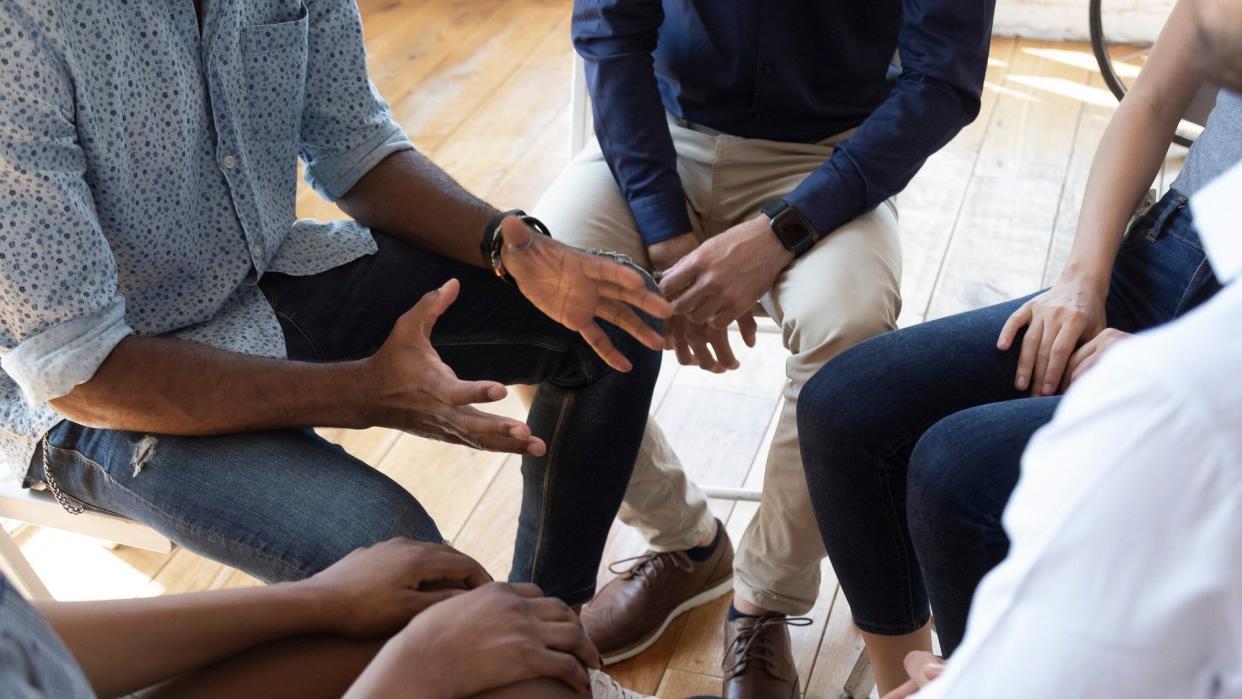Jacksonville counselor: Destigmatization, acceptance mark turning point for mental health

I started utilizing therapy and other counseling services when I was about 12. Looking back, I can remember telling my classmates that I was going to the doctor or tutoring when I was picked up early from school to go see my therapist. These days, being in therapy seems to be the norm among my friends, coworkers and family members.
As a counselor myself now, I see that the stigma that once loomed over the idea of seeking help seems to be lifting. The shame that used to be associated with needing mental health support has improved over the past few years, due in part to major events like the pandemic. With many people overwhelmed, anxious and homebound, therapy became easier to access through telehealth.
During this time, attitudes toward therapy shifted from something that shouldn’t be discussed to something that many now embrace.
New research from Thriveworks examined the attitudes and behaviors that individuals have toward counseling today. In the South — Jacksonville included — it found that individuals are not ashamed to share that they’re seeking therapy, with 89% of those surveyed stating that they would share with a loved one that they are in treatment.
Almost a quarter (23%) of Southerners are already in counseling or talk to a mental health professional on an ongoing basis. Additionally, nearly half of all Southerners polled (46%) intended to see a therapist in the next year.
When we think about why therapy has become more accepted, it’s also important to think about why individuals might need to seek help. Today, we are worried about a lot of different things. The same research revealed that Southerners worry about finances and cost of living (61%), followed by war and conflict (50%), increasing crime (44%) and natural disasters (36%).
These concerns often become topics of discussion during therapy sessions. We may also delve into broader issues such as general anxiety or depression, challenges at work or home and conflicts with partners or friends. These everyday issues don’t go away just because we’re worried about money and crime.
While the shame that was once associated with mental health has begun to lift, there are still obstacles for those seeking care. According to the Thriveworks study, 25% of Southerners note that the cost of treatment is keeping them away from services. When individuals don't feel that seeking professional help is attainable, they can seek advice in other places and share their troubles with a close friend, family member or spouse.
Fleming Island legislator: Florida’s $45 billion budget for 2024 to include behavioral health priorities
Others turn to their doctors, religious leaders or even strangers, such as a bartender or manicurist. These individuals obviously do not come with a fee; but they may come with a bias. A bias is something that therapists do not have as our relationship is purely that — a therapist and a client.
Many organizations now accept insurance, which can help cut costs immensely. Some agencies offer out-of-pocket or income-based plans and private practice providers can offer sliding scales. It does take time and effort to find a treatment facility or provider that fits your budget, but I do believe that there is an option out there to fit everyone.
To find what works for you, start by calling your insurance provider, if you have one, or visit an online directory to find a provider that takes your insurance. If you don’t have insurance coverage, you can find a provider who offers other payment plans for their services. There are also free and low-cost options and local resources, like Here Tomorrow (based in Neptune Beach) and NAMI Jacksonville.
Letters: Using the 14th Amendment to keep Donald Trump off 2024 ballot not a frivolous legal maneuver
Attitudes around mental health are in a much better place than they were even a few years ago. As a society, we have seen the benefits of being able to find healthy ways to cope with stress, depression and other symptoms. Gone are the days of sneaking off to sessions or lying about seeking help.
While therapy itself is on the road to becoming fully destigmatized, some might still experience barriers like financial cost. Addressing cost and other barriers is important to create a system where mental health care is not only accepted but available to all who need it.

Hallie Kritsas is a licensed mental health counselor with Thriveworks in Jacksonville.
This guest column is the opinion of the author and does not necessarily represent the views of the Times-Union. We welcome a diversity of opinions.
This article originally appeared on Florida Times-Union: Cost still a barrier to mental health counseling in Jacksonville

